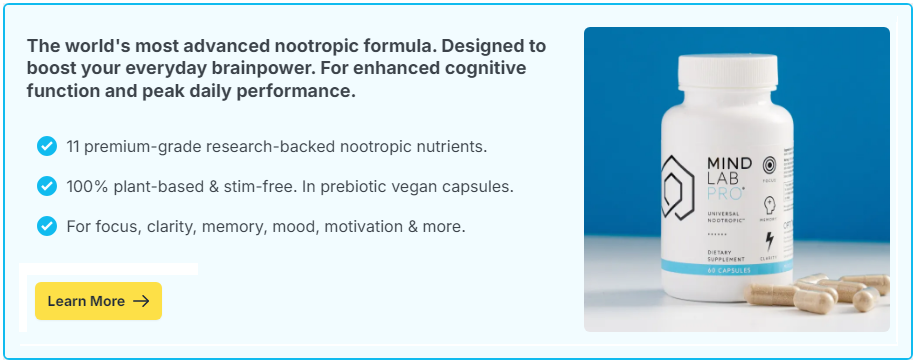
Feeling stressed all the time? You’re not alone. In today’s fast-paced world, chronic stress has become the norm—but did you know that long-term stress is actually destroying your brain?
It’s not just about feeling overwhelmed. Chronic stress can shrink your brain, weaken memory, and even increase the risk of cognitive decline. Here are 10 surprising ways stress is harming your brain—and what you can do about it.
Contents
- 1. Stress Shrinks Your Brain (Literally)
- 2. It Weakens Your Memory
- 3. Chronic Stress Kills Brain Cells
- 4. It Disrupts Sleep (Which Damages Brain Function)
- 5. Stress Increases the Risk of Depression and Anxiety
- 6. It Impairs Your Ability to Focus and Learn
- 7. Stress Causes Brain Inflammation
- 8. It Increases the Risk of Cognitive Decline
- 9. Stress Affects Gut Health (Which Affects Brain Health)
- 10. It Makes You More Prone to Addictive Behaviors
1. Stress Shrinks Your Brain (Literally)
Why it’s a problem: High levels of stress hormones, especially cortisol, can shrink the prefrontal cortex—the part of your brain responsible for decision-making and self-control.
The science: Studies have shown that chronic stress reduces gray matter volume, making it harder to focus and solve problems.
What to do: Practice mindfulness meditation to help reduce cortisol levels and protect brain volume.
2. It Weakens Your Memory
Why it’s a problem: Stress disrupts the hippocampus, the brain’s memory center.
The science: Research shows that prolonged stress impairs memory formation and recall.
What to do: Engage in brain-boosting activities like puzzles, reading, and learning new skills to counteract memory loss.
3. Chronic Stress Kills Brain Cells
Why it’s a problem: Excessive cortisol can lead to the death of neurons, particularly in the hippocampus.
The science: Animal studies have shown that prolonged stress damages and kills brain cells, leading to cognitive decline.
What to do: Regular exercise and deep breathing exercises can help reduce stress and protect your brain cells.
4. It Disrupts Sleep (Which Damages Brain Function)
Why it’s a problem: Poor sleep due to stress prevents your brain from repairing itself.
The science: Sleep deprivation has been linked to memory loss, reduced concentration, and slower reaction times.
What to do: Create a bedtime routine, limit screen time before bed, and try relaxation techniques before sleep.
5. Stress Increases the Risk of Depression and Anxiety
Why it’s a problem: Chronic stress rewires the brain to be more prone to anxiety and depression.
The science: Long-term stress reduces serotonin and dopamine levels, which are essential for mood regulation.
What to do: Spend time outdoors, connect with loved ones, and engage in activities that bring you joy.
6. It Impairs Your Ability to Focus and Learn
Why it’s a problem: Stress overloads the brain’s processing capacity, making it harder to concentrate.
The science: Chronic stress has been linked to decreased cognitive flexibility, making it harder to learn new things.
What to do: Take regular breaks, practice mindfulness, and break tasks into smaller, manageable steps.
7. Stress Causes Brain Inflammation
Why it’s a problem: Chronic inflammation is linked to neurological diseases like Alzheimer’s and Parkinson’s.
The science: Studies show that long-term stress increases inflammatory markers in the brain.
What to do: Eat anti-inflammatory foods like fatty fish, turmeric, and leafy greens to support brain health.
8. It Increases the Risk of Cognitive Decline
Why it’s a problem: Stress accelerates brain aging and increases the risk of dementia.
The science: Research suggests that people with high-stress levels are more likely to develop Alzheimer’s disease.
What to do: Engage in mentally stimulating activities, maintain social connections, and manage stress levels effectively.
9. Stress Affects Gut Health (Which Affects Brain Health)
Why it’s a problem: The gut-brain connection means that stress can disrupt digestion and mood.
The science: Studies have shown that stress alters gut bacteria, which can negatively impact cognitive function.
What to do: Consume probiotic-rich foods like yogurt, kimchi, and sauerkraut to support gut and brain health.
10. It Makes You More Prone to Addictive Behaviors
Why it’s a problem: Stress triggers the brain’s reward system, making unhealthy coping mechanisms more tempting.
The science: Chronic stress can lead to increased cravings for junk food, alcohol, and other addictive substances.
What to do: Find healthy stress outlets like exercise, meditation, or engaging hobbies to break the cycle.
Interested in more brain health listicles? Go HERE

